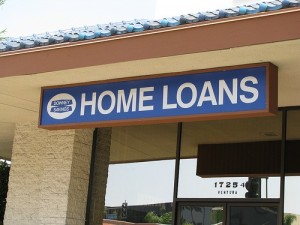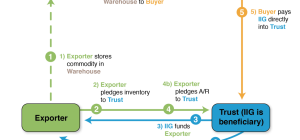 Recent legislative changes at the federal level have significantly affected the manufactured home industry in Texas. These changes generally tighten the financing guidelines for these homes, making it more difficult for buyers to obtain loans on manufactured homes. Lenders will also need more qualifications in order to provide financing for these homes. HW Magazine describes the legislative changes that involve manufactured homes and the response by some lawmakers to make financing for these homes easier to obtain.
Recent legislative changes at the federal level have significantly affected the manufactured home industry in Texas. These changes generally tighten the financing guidelines for these homes, making it more difficult for buyers to obtain loans on manufactured homes. Lenders will also need more qualifications in order to provide financing for these homes. HW Magazine describes the legislative changes that involve manufactured homes and the response by some lawmakers to make financing for these homes easier to obtain.
Overview
Congressmen Stephen Fincher of Tennessee, Bennie Thompson of Mississippi and Gary Miller of California have introduced the Preserving Access to Manufactured Housing Act in the US House of Representatives. This bill will increase the availability of financing for manufactured homes, which is the primary residence for over 22 million Americans. The PAMHA is significant because the manufactured housing market typically receives little national attention by legislators. Senators have also introduced a companion legislation to the PAMHA.
Impact
The PAMHA seeks to change the criteria that the federal government currently uses to classify home loans as high-cost without changing the strong consumer protections that are already in place. The Consumer Protection Act and Dodd-Frank Wall Street Reform Act currently specify these criteria. Nathan Smith, chairman of the Manufactured Housing Institute, observed that low-income families are dependent on financing for manufactured homes, especially in rural areas. He added that manufactured homes are the most common type of unsubsidized housing for low-income families and are a significant economic factor in many areas.
Consumer Financial Protection Bureau
The Consumer Financial Protection Bureau ruled in early 2013 that the Home Ownership and Equity Protection Act will cover all purchase loans for homes, effective January 2014. This decision means that the HOEPA will cover mortgages on manufactured homes provided they’re personal property. The CFPB guidelines will classify a large percentage of these mortgages as high-cost, predatory loans. The prospective buyers of manufactured homes will be unlikely to qualify for a mortgage since HOEPA mortgages impose an increased risk on the lender.
The CFPB ruling will therefore deny credit to many people who need to buy a manufactured home. The loss of this source of financing penalizes low-income families unfairly because they typically don’t qualify for financing on traditional homes. These families also lack access to government-insured programs for home mortgages such as Fannie Mae or Freddie Mac.
Costs
The enforcement of this rule could result in millions of families losing the equity in their manufactured homes due to the unwillingness of lenders to offer financing needed to resell the home. The MHI opposes the CFPB decision because homeowners who purchased a manufactured home they can afford will be penalized for not taking out a traditional mortgage they won’t be able to pay back.
The cost of originating and servicing a loan varies according to the size of the loan such that the cost as a percentage of the loan increases as the loan becomes smaller. This rule means that the smaller loans needed for manufactured homes may exceed the threshold specified by the HOEPA, causing these loans to be considered high cost. The PAMHA would raise this threshold on loans for manufactured homes that are designated as small balance without changing the consumer protections specified by the Dodd-Frank Act. The PAMHA also clarifies the distinction between loan originators and retailers for manufactured homes by defining an originator as a party that receives compensation from a mortgage broker, lender or another loan originator.
Additional Changes
Additional legislative changes that affect the manufactured housing market include laws that require a retailer to have a Nationwide Mortgage Licensing System ID to accept a loan application on a manufactured house. An NMLS ID would require retailers to obtain more education and accept a higher level of risk in addition to obtaining the licenses they already need.







